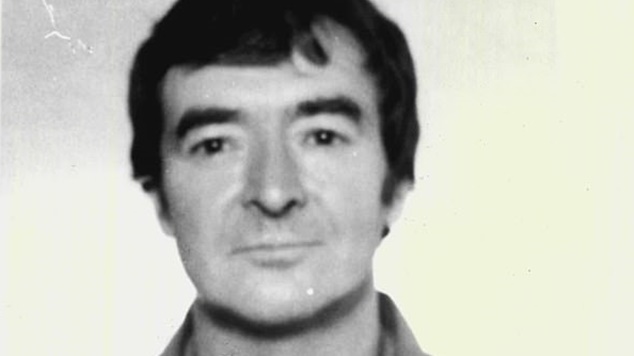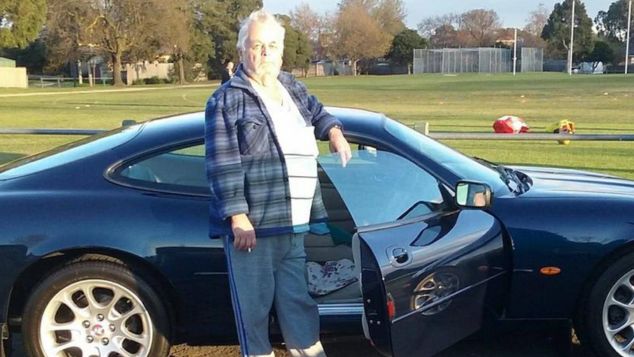
Stanley Bruce Early, the man found guilty of killing Raymond Keam (pictured), will spend his final years in prison after receiving a 22-year sentence for the 1987 murder.
In a Sydney court on Friday Early was sentenced to a maximum of 22 years behind bars with a non-parole period of 15 years and six months. He will be 91 years old when eligible for parole in 2037.
Warning: This story has details of violence, sexual assault, child abuse and other topics which might be distressing to some readers. For 24-hour crisis support and suicide prevention call Lifeline on 13 11 14. For Australia-wide LGBTQI peer support call QLife on 1800 184 527 or webchat.
In June a jury found that Early had fatally bashed Keam in Randwick’s Alison Park at night in 1987 suspecting that he was a homosexual.
The park was a well-known gay beat, but there is no evidence that the victim was gay or bisexual. Keam had been married to a woman previously and was in a de facto relationship with another at the time of his death. He had a child with each of his partners.
A post-mortem and inquest in 1988 found that the 43-year-old died of severe head injuries after being struck by a person or person unknown. His body was found in the grass at the northern end of the park by a member of the public at 6.15am on 13th January 1987.

Early (pictured above) was found guilty despite the case being built on circumstantial evidence. There were no witnesses to the attack.
Handing down the sentence Justice Dina Yehia said she was unable to find beyond a reasonable doubt that Early had delivered the fatal blow in the attack, but she was convinced he assaulted Keam, or directed other to do so.
“I find as an aggravating factor that the offence was motivated by hatred or prejudice against homosexual males,” she said. Justice Yehia said Early’s hatred of gay men was “an affront to any civilised society.”
During the trial the court heard from witnesses who described a man known as ‘Spider’ who used to beat up men he believed to be homosexuals in the park. It was claimed that ‘Spider’ was Early, who lived nearby. At the time of the offence was known as Stanley Sutton.
Prosecutors also relied on testimony from his brother who recalled Early had visited him at his home in Bundaberg, Queensland the day after the attack occurred. Barry Sutton told the court that his brother had told him “He had been in a bit of a blue, so he’d just come up”, and that it was “in the park across the road”.
The court also heard from another prisoner who Early allegedly shared details of the murder to while he was in custody.
The case was one of 88 deaths that occurred in New South Wales between 1976 and 1988 that were reviewed by Strike Force Parrabell. Police had offered a million-dollar reward for information relating to the case.
Early, who pleaded not guilty to the murders,
The court heard that Early himself was bisexual, but had never been in a stable or long-term relationship. He told psychiatrists that he had been sexually abused as a child and had also been raped while serving a previous prison sentence. At the time of the murder, he was on bail after committing an act of indecency against a 12-year-old boy.
OIP Staff
Do you need some support?
If you are struggling with anxiety or depression, support and counselling are available from:
QLife: 1800 184 527 / qlife.org.au (Webchat 3pm – midnight)
QLife are a counselling and referral service for LGBTQIA+ people.
DISCHARGED: info@discharged.asn.au / discharged.asn.au
Discharged is a trans-led support service with peer support groups for trans and gender diverse folks.
Lifeline: 13 11 14 / lifeline.org.au
Beyondblue: 1300 22 4636 / www.beyondblue.org.au
You can support our work by subscribing to our Patreon
or contributing to our GoFundMe campaign.






